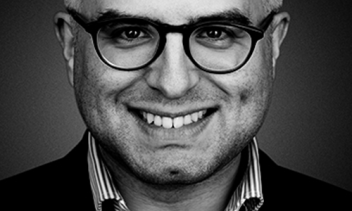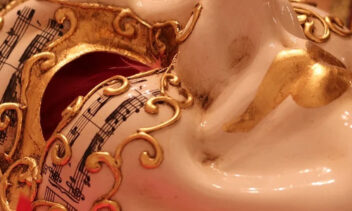Living in history without living in the past
Is what the task is.
-Charles Wright
How does one make a timeline of God, a timeless entity? Is making a timeline—a fixed entity usually assuming some degree of linear development—out of the ever-changing and yet unchanging God a blasphemy in its own right?
While this might seem like an abstract question to be asked among friends, late at night while lighting up a havdalah candle, this touches upon some of the foundational philosophical questions about the relationship between God and history. The long-named and long-eyed German philosopher Georg Wilhelm Friedrich Hegel (1770-1831) most famously developed a philosophy that charges that “history is the process whereby the spirit discovers itself and its own concept.” In his thesis-antithesis-synthesis view of the unfolding of history, Hegel had a not-entirely positive view of Judaism’s role in the development of history, seeing in Christianity’s success a statement about its historical role. In a particularly poetic formulation in his Phenomenology of Spirit, he puts it this way:
“The bud disappears when the blossom breaks through, and we might say that the former is refuted by the latter; in the same way when the fruit comes, the blossom may be explained to be a false form of the plant’s existence, for the fruit appears as its true nature in place of the blossom. The ceaseless activity of their own inherent nature makes these stages moments of an organic unity, where they not merely do not contradict one another, but where one is as necessary as the other; and constitutes thereby the life of the whole.”
In the wake of Hegel’s negative perspective on Judaism’s place in the historical process, Jewish philosophers dealing with the question of history emerged. (As a not-quite apolitical aside: The challenge of Hegel’s historicism issues a qualification to those who are prone to thinking of their own sect triumphantly, as seeing in popularity an indication of a meta-historical rightness works against us more often than not.) Nachman Krochmal and Franz Rosenzweig were two major Jewish philosophers to deal with the question of history and Judaism’s place in it—Krochmal in his wittily titled Moreh Nevuchei Ha’Zman and Rosenzweig in his Star of Redemption. Both look at history and the question of Jewishness, building philosophies of history that are more amenable to the place of Judaism in the path of historical progress. In his own way, Rabbi Abraham Isaac HaKohen Kook was dealing with many of the same questions, particularly in his essay “To the Process of Ideas in Israel” ( למהלך האידיאות בישראל), going so far as to namedrop Krochmal at times.
If God couldn’t (or chose not to) stop the atrocities of the 20th century, and if people of God didn’t stop the cruelty either, many opted to look away from the path of religion for meaning-making.
This is all to say that developing any timeline of ‘God’ makes about as much sense as using a butterfly’s wing as a tourniquet (which is to say—not at all). With all those qualifications aside, we did our best to put the God beyond history into history this week, and we made a timeline for you. This is a timeline more of the human (or Jewish) understanding of the God-relationship, and is focused on the human perception far more than on the God-reality—which should hopefully help us sidestep any major theological misconceptions or travesties we might commit on the way. Bottoms up, and let us know how wrong we are about all this by email, twitter, or your social media of choice. Here goes—a history of man’s relationship with a God beyond history. Gulp.
Biblical Era: God Makes an Entrance
In the foundational text of all monotheism, God cuts an interesting force, touchingly personal at times (particularly in His blessings to the patriarchs and matriarchs) and stunningly emotional at others (think of the zealotry of the desert God after the consistent messups of the Jews). This is a canonical God, to put it in terms that likely don’t help but are enjoyable to say. If the canonical indicates a sense that whatever is is intricately bound in a broader network of meanings and possibilities, then the God of the Torah is canonical. The verses by and about God have been unpacked, discussed, and debated countless times over the coming millenia by theologians and laypeople of all religions, making this God one of the most fraught and mysterious characters in all of human literature. God as manifested in the Torah is also unafraid of expression through anthropomorphization, although commentaries (as well as translations, notably the Targum Onkelos) often work to de-anthropomorphize the bodily imagery of the Divine.
Prophetic Era: God Makes a Statement
The God of the prophets is a deeply opinionated God. Seemingly stuck between the opposing poles of frustration and idealistic optimism, God expresses through the Prophets a deeply ethical God, frustrated time and again by the fat sacrifices of the rich as the poor go hungry, and by the double-crossings of His troubled nation. It is for good reason that the civil rights activists in the US turned to the God of the prophets (as well as the prophets themselves) for inspiration and direction in their long struggle for justice—God’s expression in the Neviim and Kesuvim is a God of pathos and ethos, of passion and ethics, although marked as well by the same eager zealotry that we met in the Torah. In the aphoristic writings in particular, God takes on a fascinatingly enigmatic identity, such as in Tehillim, Shir HaShirim, Mishlei, Iyov, and Kohelet. In each, God is equally close in suffering, romantically approachable, wise, unknowable, and enigmatic.
Talmudic Era: The Rabbis Meet God
As the rabbinic system settled into its crystallized dynamism in the Mishnah and the Talmud, the rabbis practiced and expanded their creative independence throughout the vast world of rabbinic theology. In a number of astoundingly bold interpretive gestures, the sages held on both to the powerful transcendence of God (think Succah 5a: “The Divine Presence never descended, nor did Moses and Elijah ever ascend to heaven”) while also expanding on the anthropomorphic imagery of Tanach to deepen our conception of God with a deeply feeling sensitivity (think of the many Talmudic mentions of God’s crying, God donning Teffilin, God praying, etc.).
If the challenge of understanding the God of Tanach lies in the dense nature of the text, the challenge of understanding the God of the Talmud lies in the vastness of rabbinic literature, as the Mishnah, Midrash, Talmud, and associated texts include thousands of pages of musings and interpretations about all areas of Jewish life, many of which comprise fragments of a system, but not systematic efforts to understand theology or God. This will change in years to come.
Middle Ages: God Becomes a Subject
In the Middle Ages, God became a subject. Jewish philosophy and theology emerged as fields of interest unto themselves, with Rabbeinu Saadiah Gaon’s masterful Emunot V’Deot offering the first sustained consideration of what Jewish beliefs are. Until this point, while we had Jewish beliefs, these beliefs were spread over an entire world of texts, and Saadiah Gaon’s efforts to distill Jewish beliefs and ideas into one work changed the course of Jewish thought forevermore.
Aristotelian thinking impacted the Jewish world, with rationalists (such as the Rambam) immersed in reconciling reason with revelation in their understanding of God as a transcendent unmoved Mover and Original Intellect, while the mystics (such as the Chassidei Ashkenaz, as well as the Spanish Kabbalists) looked at God’s interactions with this world through a far different set of terms and imagery (such as the sefirot).
As compilers of Jewish law and thought went about their compiling, organizing lists of Jewish beliefs, the corresponding necessity of said beliefs was now interrogated. This is the question of doctrine, and it hung over many theological discussions of the Middle Ages—what must Jews believe, if anything? This question still floats around conversations of Jewish thought, as the debate around whether Judaism is a religion of mandated laws or beliefs continues to run into the 21st century.
Modern Era: God Makes a Comeback
Crises often invite a renewal of intense interest in God, and along with it drastic reworkings of our conception of God. The catastrophe of the Spanish Inquisition contributed to the Arizal’s radical contributions to our understanding of how God created the world, self-contracting in the process, and the later Khmelnytsky Uprising had a similar effect on the world of Jewish thought. The Chassidic revolution birthed new insights into how God may manifest in this world. While the Chassidic movement was largely aimed at uplifting the spiritual experience—rather than conceptual understanding—of the people, its elevated focus on God brought a far more immanent (close, nearby, immediate) sense of God to the Jewish world. The mitnagdic (literally: reactive. Yes, a group of people who are known as reactive. You need not guess what this writer’s perspective on them is) reaction, notably in Rav Chaim of Volozhin’s Nefesh HaChaim, brought controversy to the question of God.
Debates about God in modernity were not just limited to the religious world though; debates about the relationship between God and this world were all the rage in the Enlightenment, and philosophers such as Liebniz and Spinoza launched serious reconsiderations of the previously held belief systems of traditional believers. Modernity also brought the competing affections of a vast network of belief systems, each of which approached (or ran from) God from within their own framework of belief, all culminating with the death of modernity in the mid-20th century.
Contemporary Era: God—After Everything?
Where is God today? Moreover—who is God today? The death of modernity for many bespoke the death of all meaning, or at least religious meaning. If God couldn’t (or chose not to) stop the atrocities of the 20th century, and if people of God didn’t stop the cruelty either, many opted to look away from the path of religion for meaning-making. For others, belief in God after the 20th century—after modernity—is the only option. When facing a world beyond meaning and easy narratives, laughing tearfully with God from among the rubble offered the only solution to these people. Think of Jacque Derrida, a founding father of postmodern philosophy, who would pray desperately at night, a prayer after the realization of the limits of prayer, and yet a prayer nonetheless.
Entering the 21st century, an age in which it has been said that our issue is either too little (attention, emotionality, reality) or too much (distraction, time, money), situating God in our world is an ongoing process. The road to God is long and ancient, but also dynamic and ever-changing. Let us look at where this road may lead us, together.








